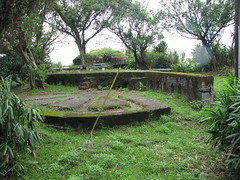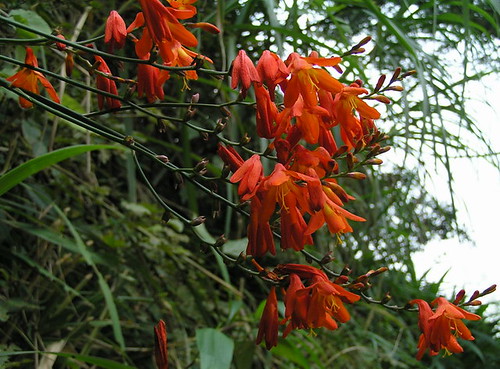Taiwan News on Referendum/Polling Issue
 Folks, this issue needs massive play....Taiwan News has a fantastic piece on the Referendum vote, in which 18 county governments run by the KMT have determined to defy the law and separate the legislative vote and the referendum vote.....below they point out that the KMT plans to scatter 50,000 "election monitors" around the voting booths to intimidate voters, and learn who is pro-DPP by seeing whether they vote on the referendum issue (most people who bother to vote will vote positively)...
Folks, this issue needs massive play....Taiwan News has a fantastic piece on the Referendum vote, in which 18 county governments run by the KMT have determined to defy the law and separate the legislative vote and the referendum vote.....below they point out that the KMT plans to scatter 50,000 "election monitors" around the voting booths to intimidate voters, and learn who is pro-DPP by seeing whether they vote on the referendum issue (most people who bother to vote will vote positively)...+++++++++++++++
EDITORIAL
Taiwan News
Stop subversion of secret ballot
The announced intention by the opposition Kuomintang and its 18 city and county mayors to implement a so-called "two-stage" balloting system for the January 12 Legislative Yuan and referendum election despite last Friday's decision by the Central Election Commission for a "single-stage" method may present Taiwan's democracy with a grave challenge.
Under the Central Election Law, the CEC is responsible for deciding policy on election processes and other related matters and the city and county election commissions, typically headed by the mayors or commissioners of such districts, are responsible for implementation.
While the actual layout of voting booths is the responsibility of local election officials, any arrangements cannot violate the process and procedures for voting determined by the CEC.
By a nine to four vote, the CEC resolved Friday to adopt a "single-step" voting format for the January 12 Legislative Yuan and the concurrent holding of two referendums.
Under the system, voters will collect four ballots for constituency and party proportional legislative ballots and two referendums, respectively a
DPP-promoted referendum on the repossession of KMT "ill-gotten" party assets and a KMT-sponsored "anti-corruption" initiative, and cast the ballots into four separate boxes.
However, the KMT has demanded a "two-step" format in which citizens will collect and cast referendum ballots separately after completing voting in the Legislative poll.
This system would be similar to that used in the March 20, 2004 polls in which two "peace referendums" initiated by President Chen Shui-bian were held in tandem with the presidential poll and were invalidated as neither received the necessary 50 percent turnout due to a boycott by the KMT and other pan-blue parties.
It should first be noted that single ballots or collection or single-step use of voting machines is the norm in most democracies and that the principle of the secret ballot, which is enshrined in Article 129 of our own Constitution, is consistently given far higher priority than the question of whether arrangements are made for citizens who refuse to vote.
A case in point is Australia, which requires that all citizens vote as a legal obligation of citizenship and imposes significant fines onrecalcitrants.
The government and the Democratic Progressive Party favor the "single-step" pattern to simplify the voting process for efficiency and to expedite easy, rapid and convenient participation by citizens in voting for both the legislative polls and the referendums.
Another clear intent is to reduce the effectiveness of vote buying or any forms of subsequent intimidation or punishment of voters and block "contract" vote buying by making it more difficult to monitor for whom voters cast their ballots.
Such reasons may not be entirely "disinterested" but the motivations to boost participation and protect universal, equal and secret voting are at least within the bounds of democratic ethics.
Big Blue is watching
On the contrary, the 2-stage process supported by the KMT camp would expose voters who wished to vote in referendums to public view, especially if the polling booths for the referendums were physically separated from the balloting for the legislative races or even put in different buildings.
Indeed, many voters who collected the referendum ballots on March 20, 2000 faced such obstacle courses or were even subject to heckling or even intimidation by pro-KMT voters or "monitors."
The KMT's clear short-term objective is to discourage voters from participating in the "party assets" referendum, even though polls show that an overwhelming majority of citizens, including "pan-blue" and nonpartisan voters, favor the return of its "ill-gotten assets" to the country.
But even more grave is the fact that the combination of "two-stage" voting and plans by the KMT to mobilize over 50,000 "election monitors," enough to assign three to each polling booth, will allow local KMT branches to collect detailed information on just whom in each voting precinct favors the DPP or KMT.
The "two-stage" format's structural exposure of the preferences of each and every voter to public view will undoubtedly undermine the fundamental democratic principle of the secrecy of voting and constitute a massive violation of the basic human and civic rights of all our citizens, no matter what their preferences.
Moreover, the fact that the coming presidential poll may well be the last opportunity for the KMT, at least in its current form, to "win back Taiwan" will leave open the possibility that citizens whose preferences have been so exposed will be vulnerable to all kinds of pressures and intimidation to either switch from "green" to "blue" or not vote at all on March 22.
Moreover, the "two-stage" system and its attendant monitoring will spur the use of "contract" vote buying by providing a simple and direct method for local party organizations to monitor "contract compliance" by observing whether the "bought" voters abide by the tacit referendum boycott.
Given the tight nature of the coming presidential race, the use of intimidation or vote-buying against "green" supporters, could well determine the result of the March 22 poll and allow the KMT to "win back" domination over Taiwan through the most undemocratic of methods.
If the KMT wins the upcoming legislative and presidential elections by trampling on the sacred democratic principle of the secrecy of the ballot box, it is quite possible that Taiwan will never again have free elections.
The KMT camp, led by the Harvard University law school doctorate and former justice minister Ma Ying-jeou, have adopted the attitude that the CEC or the DPP-led Executive Yuan cannot do anything to block their concerted effort to realize "one country, two systems" in our national elections.
We believe that there is absolutely no room for ambiguity on the part of the Taiwan government in defending our hard-won democracy with all the legal and political tools at its disposal against this open conspiracy to subvert the sacred democratic and human right of the secret ballot and thereby compromise our hard-won right of domestic and, quite possibly,national self-determination.
In addition, we urge all Taiwan citizens to consider whether a party that shows such disdain for our fundamental constitutional rights and the integrity of Taiwan's legal system merits an opportunity to impose its undemocratic rule on our 23 million people.
+++++++++++++++
A great editorial.....the DPP needs to scream about the election monitors. And scream and scream. And we need to get the international media INVOLVED.
[Taiwan] [KMT] [DPP] [Ma Ying-jeou]
__________________________________________________

















